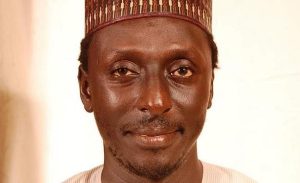Kingsley U.N. Chikwendu —
A target has been set to rehabilitate about 22,000 km square of degraded land and improve livelihood of over 20 million Nigerians in 2030.
This is according to the Nigerian Minister for Environment, Alhaji Mohammed Abdullahi who revealed this yesterday at a Capacity Training Workshop on Opportunity Mapping for Improved Decision Making and Monitoring of Great Green Wall (GGW) Projects, in Abuja, the country’s capital.

The program which was organised by the National Agency for the Great Green Wall (NAGGW) in collaboration with the UN Environment Programme (UNEP), is designed to improve International Best Practice for Ecosystem-Based Disaster Risk Reduction (ECO DRR).
Also read:
:FG Urges UN’s Support On Environmental Action Plan Implementation
:Nigeria, Poland To Collaborate On Curbing Environmental Challenges
The minister was represented by the Director, Planning, Research and Statistics of the ministry, Mr Stanley Jonah.
“The NAGGW has already engaged in baseline studies and Environmental Impact Assessments; community mobilisation, and awareness campaign; afforestation and land management; promotion of alternative livelihood, rural infrastructure, and employment generation, Abdullahi said.
“The ongoing programme includes ecological restoration and rehabilitation to enhance the livelihoods of the affected communities and strengthen their resilience to climate change.
“The programme also involves, promotion of climate smart agricultural practices to enhance food security and climate change adaptation; improvement of critical rural infrastructure for enhanced socioeconomic development, among others,’’ he added.
The minister said that the Federal Government was taking positive steps to mitigate the risks on climate emergency, food security, biodiversity and pollution as much as possible within the resources available.
He said that the programme was aimed at restoration and sustainable management of land in the Sahel-Saharan region to addressing land degradation and poverty.



